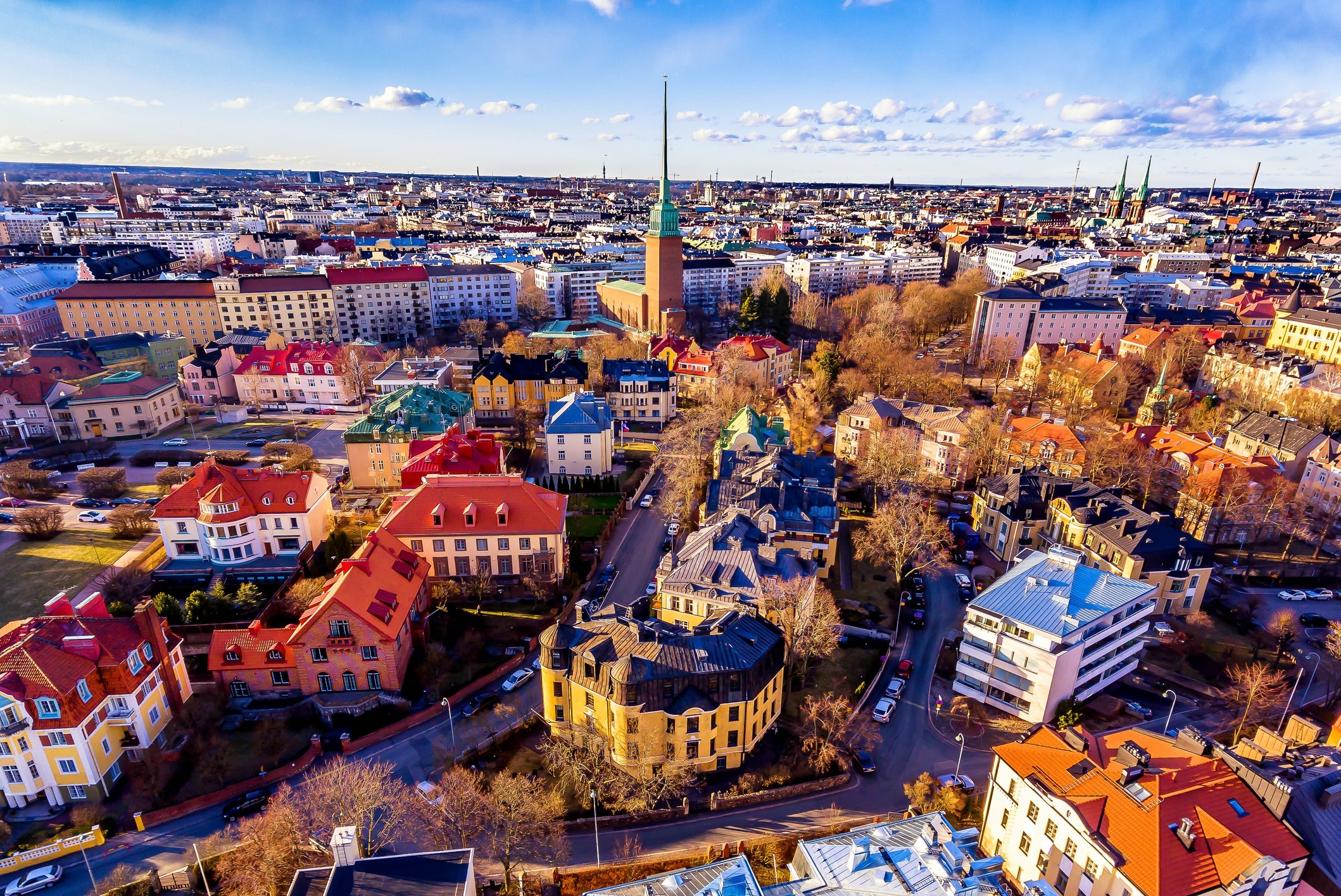I moved to Finland 40 years ago – here’s what life is like in the ‘world’s happiest country’
As Finland is once again branded the cheeriest country, Tim Bird – who swapped Britain for the Nordic nation in the 1980s – shares the reality of life in ‘Happy Land’

Your support helps us to tell the story
From reproductive rights to climate change to Big Tech, The Independent is on the ground when the story is developing. Whether it's investigating the financials of Elon Musk's pro-Trump PAC or producing our latest documentary, 'The A Word', which shines a light on the American women fighting for reproductive rights, we know how important it is to parse out the facts from the messaging.
At such a critical moment in US history, we need reporters on the ground. Your donation allows us to keep sending journalists to speak to both sides of the story.
The Independent is trusted by Americans across the entire political spectrum. And unlike many other quality news outlets, we choose not to lock Americans out of our reporting and analysis with paywalls. We believe quality journalism should be available to everyone, paid for by those who can afford it.
Your support makes all the difference.It’s that time of the year again in Finland. Mid-March is release date for the annual UN World Happiness Report and we’re top of the charts – for the seventh consecutive time. What Manchester City or Real Madrid are to football, Finland is to happiness.
Forgive us if we’re getting a bit blasé about this honour. Everyone likes a compliment but, frankly, there are more pressing issues. Our noisy Russian neighbour is rattling its sabres quite loudly and a wave of industrial action is responding to proposed austerity by our right-leaning government. Well-travelled, well-educated Finns are only too aware that spring is in full swing across Europe, but here the ice is still melting around our Baltic coasts and lakes. We would be happier if it all disappeared overnight.
When I first came to live in Finland as an English teacher in the 1980s, the country was a remote and unknown quantity, quietly tucked away between Sweden’s Volvo and Abba to the West and the Soviet behemoth to the East. Michael Palin’s musical Monty Python tribute described it as “sadly neglected and often ignored” while admiring its non-existent “lofty mountains”.
It wasn’t until Nokia was established as a ubiquitous global brand in the 1990s that Finland’s international profile – the Suomi kuva, or ‘Finland image’ – went up a few notches, and even then many non-Finns thought Nokia was a Japanese company. But joining the EU in 1995 gave it a big boost, and the monumental accession to Nato in response to Russia’s aggression in Ukraine made a bold international statement.
Read more on Europe travel:
Many Finns are amused at how the previous stereotype of monosyllabic, gloomy reticence, echoed in the films of the Kaurismäki brothers Aki and Mika, has mutated to one of cheerful optimism. The stereotype was always an over-generalisation in any case, as stereotypes tend to be. Social distancing during the Covid pandemic was supposed to be easy for Finns, reputed to be especially protective of their ‘private space’. But that idea is contradicted by the fact that Finns love losing themselves in a festival or rowdy sports crowd as much as the next nation. Having said that, Finland is a big country with lots of space and plentiful natural beauty, so it’s relatively easy to be alone if you want to.

We’re grateful for the positive attention, but we Finns (following Brexit, I’m a dual Finn-Brit citizen) think the UN should be monitoring something more nuanced than ‘happiness’, which is by nature a transient quality. Many would prefer ‘contentment’, an acceptance that life can be good within parameters of realistic expectation, in a society where the gap between the rich and the less affluent tends to be narrower than in other countries. We can’t deny that, apart from those long, stubborn winters, Finland has a lot going for it. The northerly location means the long light summer days, in any case, offer compensation for the short dark ones.
There are no earthquakes or volcanoes. Mislay your phone or wallet and there’s an excellent chance that you’ll get it back. Education standards might have slipped from their best-in-the-world status, but they’re still pretty good. We have to pay a charge for most health care, but it’s affordable and once you get to the front of the queue the quality is good. There’s a generally enhanced awareness and appreciation of the environment. Public transport is widespread and generally efficient. A tendency to drink too much has never been deterred significantly by the high price of alcohol, but you get the sense that getting drunk doesn’t figure on the youth ‘cool’ register.

Finns attribute to themselves a certain stoicism, an uncomplaining heads-down determination to deal with what’s in front of them. They have a word for this supposed virtue: sisu. It could be applied to simple tasks, like having to clear the snow off your car after a blizzard, as well as bigger challenges, such as resisting Soviet invasion during the Second World War. It’s a perceived quality that has its roots in the agrarian lifestyle that preceded the feverish urbanisation of recent decades, that has seen the capital Helsinki and other cities expand and develop.
If you only visit the increasingly cosmopolitan and culturally vibrant seaside capital Helsinki on a warm summer day, without venturing to one of the smaller provincial towns with their unemployment and aversion to immigration, you can easily accept that this could well be the happiest place on Earth. The newly elected president, the media-friendly polyglot Alexander Stubb, was quick to pronounce that Finnish happiness rests on three main pillars: nature, trust and education. More accustomed to international attention than they used to be, most Finns chuckle or shrug at the accolade. They’re hard to impress, but they’ll be happy enough if they make it eight in a row this time next year.
Read more: How this Finnish ‘sauna capital of the world’ helped me recover from burnout
Join our commenting forum
Join thought-provoking conversations, follow other Independent readers and see their replies
Comments